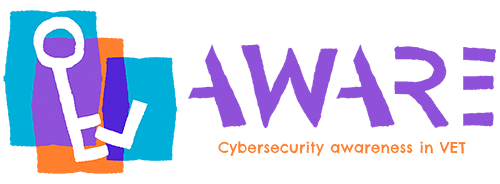Module 1: Brief History of Cybersecurity and Ethical hacking

OVERVIEW
This module includes an overview of Cybersecurity and Ethical hacking history aiming to increase knowledge and awareness of this important issue in the digital environment.
More specifically, this module consists of three 3 units: face-to-face unit addressing the origins of cybersecurity and explaining basic concepts through a chronological perspective, including some learning activities; self-directed unit addressing different types of cybersecurity and concept of ethical hacking; and finally, reflection unit to reflect upon the learning material through a short quiz. The module covers the various milestones and significant events in the history of cybersecurity, from the early days of computer technology to the current landscape of online security. It also delves into the concept of ethical hacking, explaining how it has emerged as a crucial tool for protecting computer systems and networks. By the end of the module, learners will have gained a deeper understanding of the evolution of cybersecurity and the importance of ethical hacking in ensuring the safety and security of our digital infrastructure.
KEY WORDS
- Cybersecurity
- Ethical hacking
- Risks
- Computer science
- Critical thinking
LEARNING OBJECTIVES
By the end of this module, participants should be able to achieve the following learning outcomes:
Knowledge:
- Describe the key events and milestones in the history of cybersecurity, from early computer networks to modern cybersecurity threats.
- Explain the key principles of ethical hacking, including vulnerability scanning, penetration testing and social engineering.
- Understand the key terms related to cybersecurity and ethical hacking.
- Understand the importance of cybersecurity and information security.
Skills:
- Be able to identify and describe key historical figures and organisations that have played a significant role in the development of cybersecurity and ethical hacking.
- Get familiar with the basic types of cybersecurity.
Competences:
- Develop their critical thinking skills, evaluating the ethical implications of different cybersecurity measures and considering potential impact on privacy.
Time schedule
Time necessary for: F2F/guided learning: 1,5 hours.
Learning content (self-directed learning): 0,5 hours.
Reflection questions: 15 minutes.

Useful References And Resources
(EC-Council, 2016) https://youtu.be/iU_7zKypJZI
(CyberNews, 2020) A brief history of Cybersecurity and Hacking https://youtu.be/V6p7lFsokXo
(Simplilearn, 2020) What Is Ethical Hacking? https://youtu.be/XLvPpirlmEs
(Flair, n.d.) Introduction to Ethical Hacking. https://data-flair.training/blogs/ethical-hacking/
(CYBER-SECURITY.DEGEE, 2022) https://cyber-security.degree/resources/history-of-cyber-security/
(Edureka, 2022) https://youtu.be/wYlJUj77QZg
(Avast, 2022) https://blog.avast.com/history-of-cybersecurity-avast#the-1980s





